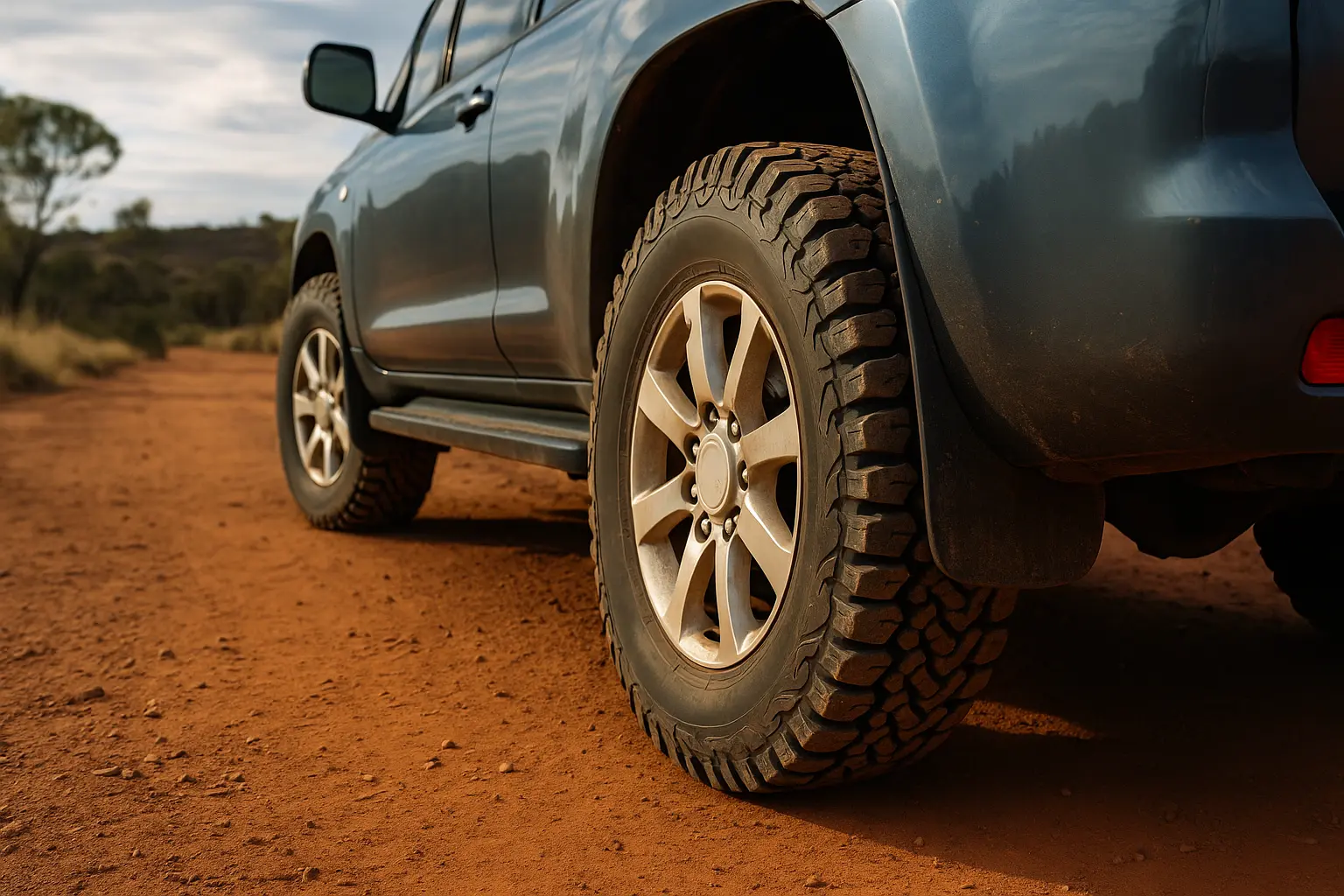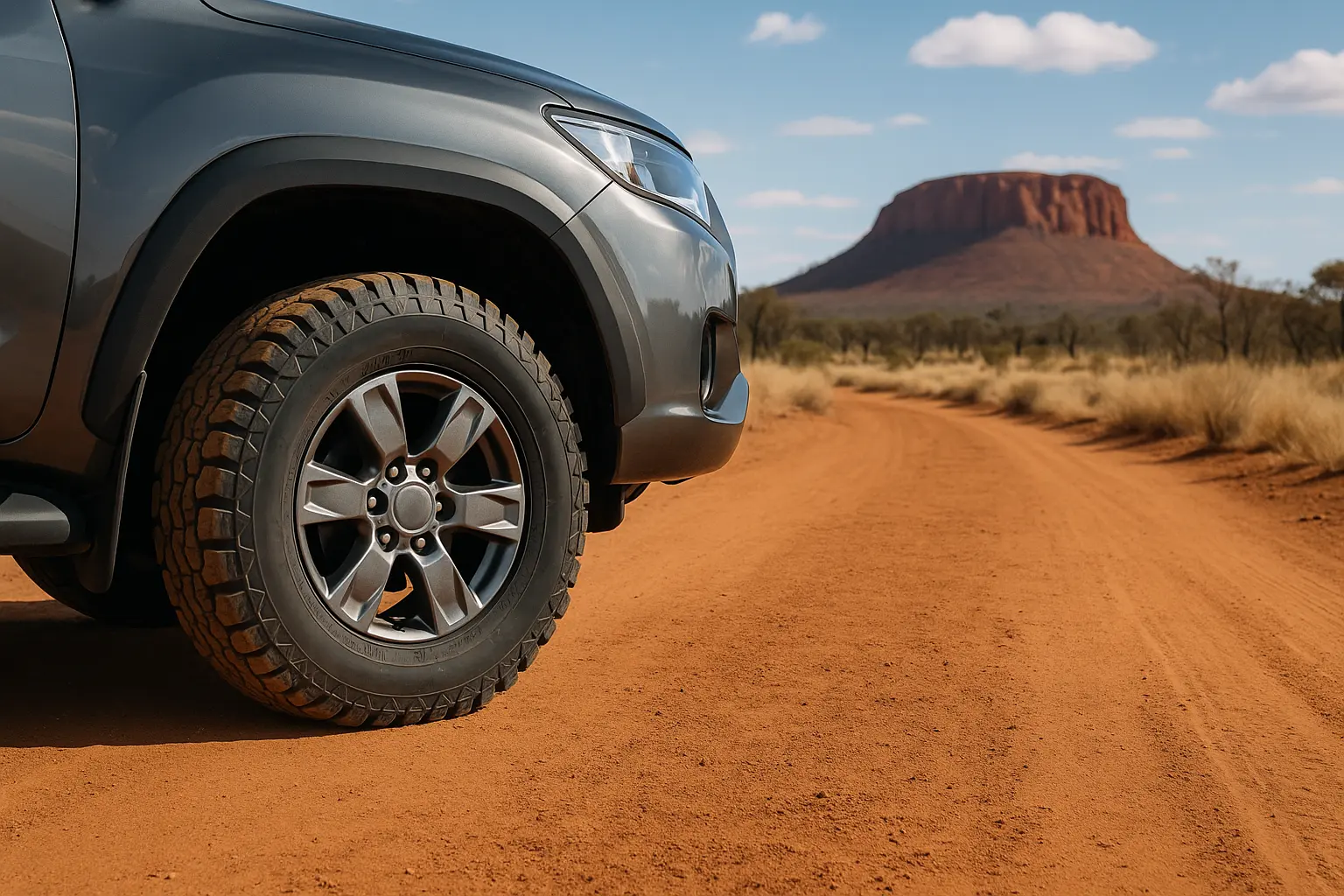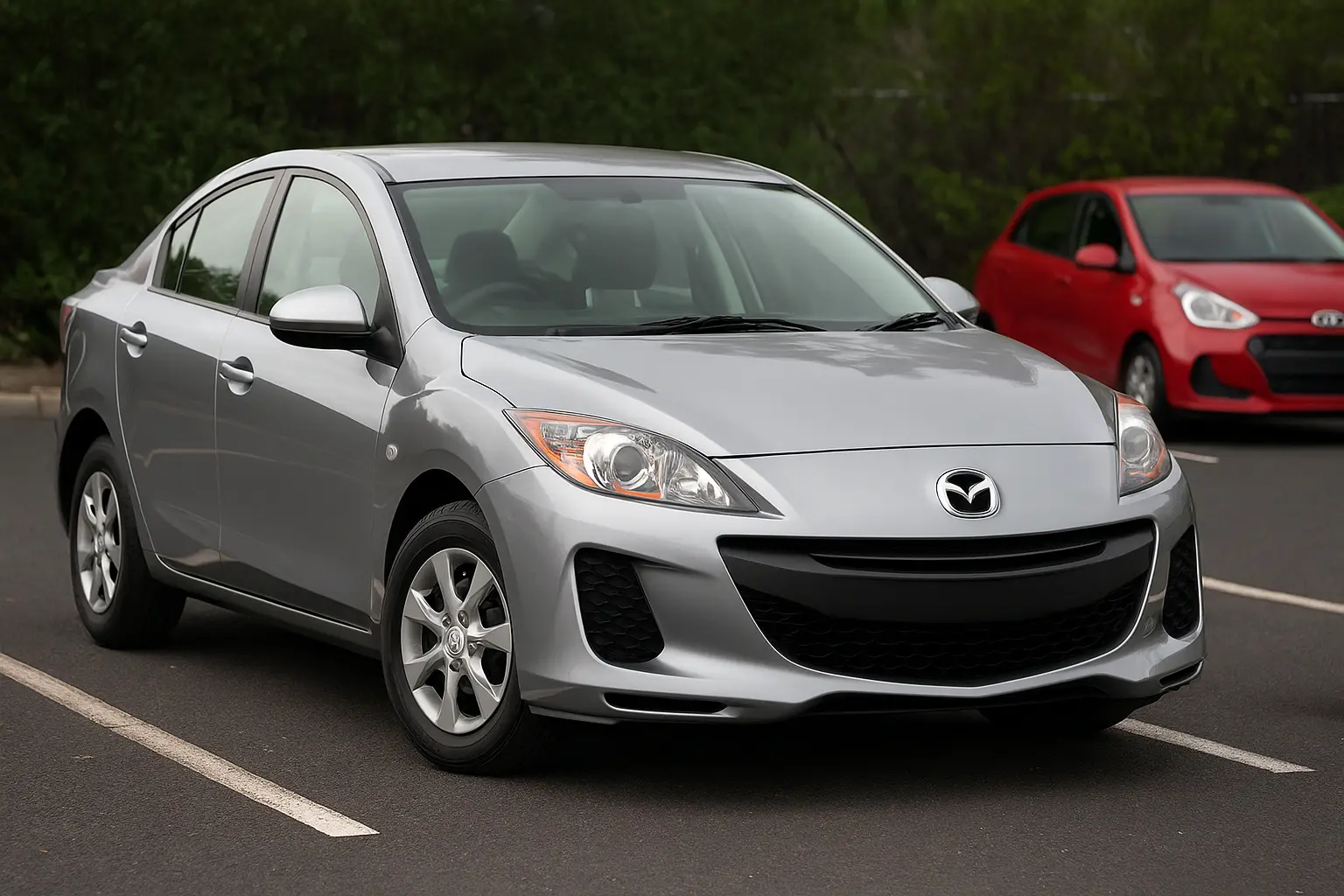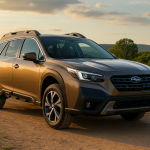Australia’s diverse terrain — from city highways and mountain roads to dusty outback trails — demands tyres that can keep up with varying conditions. In 2025, choosing the right tyres isn’t just about price or brand; it’s about performance, safety, fuel efficiency, and longevity.
Whether you drive a compact hatchback in Sydney, an SUV in the Gold Coast hinterlands, or a 4WD in the Northern Territory, this guide will walk you through everything you need to know about selecting the perfect set of tyres for Australian roads.

Why the Right Tyres Matter
Your tyres are the only part of your car that touches the road. That makes them critical for:
- Grip and handling
- Braking distance
- Fuel efficiency
- Comfort
- Towing capacity
- Hydroplaning resistance
In Australia, extreme heat, sudden rain, and rugged terrain mean that the wrong tyre choice can lead to poor handling, excessive wear, or even accidents.
Understanding Tyre Types in Australia
There are several main tyre types available on the Australian market:
a. All-Season Tyres
- Designed for moderate climates.
- Good performance in both wet and dry conditions.
- Best suited to urban and suburban areas.
b. Summer Tyres
- Excellent dry and wet performance.
- Not ideal for cold regions.
- Offer sharper handling and braking.
c. Winter Tyres
- Ideal for regions like the Snowy Mountains.
- Superior traction on snow and ice.
- Not recommended for year-round use in warmer climates.
d. Performance Tyres
- High-speed stability and cornering.
- Ideal for sports cars and performance sedans.
- Usually come with a softer compound (wears faster).
e. 4x4 / Off-Road Tyres
- Include Highway Terrain (HT), All-Terrain (AT), and Mud Terrain (MT) options.
- Designed to withstand off-road conditions, rocks, sand, and gravel.
f. Run-Flat Tyres
- Allows driving short distances after a puncture.
- Common in luxury vehicles.
g. Eco Tyres
- Low rolling resistance.
- Improved fuel economy.
- Ideal for electric and hybrid vehicles.
Key Factors to Consider in 2025
a. Driving Environment
- City roads vs regional highways vs off-road trails.
- Smooth asphalt or pothole-ridden streets?
b. Climate
- High temperatures = faster tyre wear.
- Rain-prone areas = better wet grip required.
c. Vehicle Type
- Sedans, hatchbacks, SUVs, utes, hybrids or EVs.
- Manufacturer-recommended specs must be followed.
d. Load Rating
- Determines how much weight your tyre can support.
- Especially important for utes and vehicles that tow.
e. Speed Rating
- Indicates the maximum speed capability of the tyre.
f. Noise and Comfort
- Premium tyres offer quieter rides.
- Some are designed to reduce road vibrations.
Tyres for Different Road Conditions
Australia’s roads can range from smooth coastal highways to dusty unsealed outback tracks. Choose accordingly:
| Road Type | Recommended Tyre Type |
|---|---|
| Urban (Sydney/Melbourne) | All-Season or Summer |
| Wet/Tropical Areas (QLD) | Wet-grip rated or All-Season |
| Outback/Remote | All-Terrain or Mud Terrain |
| Snowy regions | Winter Tyres |
| High-performance driving | Performance Tyres |
Regional Tyre Needs
a. Cities (e.g., Sydney, Melbourne)
- Focus: fuel economy, quietness, comfort.
- Tyre suggestion: Premium all-season with wet grip.
b. Country Roads
- Watch for potholes, sharp gravel.
- Tyre suggestion: Durable sidewalls, reinforced tyres.
c. Outback / Off-Road
- Extreme durability, puncture resistance.
- Tyre suggestion: AT or MT tyres with deep tread.
Choosing Tyres Based on Vehicle Type
a. SUVs
- Tyres should support higher load and ground clearance.
- All-Terrain tyres recommended for off-road trips.
b. Hatchbacks & Sedans
- Prioritise comfort and road noise reduction.
- Fuel-efficient eco tyres are a smart pick.
c. Utes & 4WDs
- Load rating and off-road grip are key.
- Mud Terrain or All-Terrain tyres preferred.
d. Electric & Hybrid Cars
- Require tyres with low rolling resistance.
- Must support extra weight from batteries.
Tyre Technology Trends in 2025
a. Smart Tyres
- Embedded sensors that monitor pressure, tread, and temperature.
- Some link to car infotainment or mobile apps.
b. Noise-Reducing Tread
- Foam or tech inside the tyre cavity to reduce road noise.
c. Eco-Friendly Materials
- Sustainable rubber compounds.
- Recycled and renewable material use is on the rise.
d. Self-Sealing Tyres
- Puncture-resistant sealant inside the tread.
Tyre Brands Popular in Australia (2025)
- Michelin – Premium performance and durability.
- Bridgestone – Widely available, solid wet-weather grip.
- Continental – Known for advanced safety features.
- Pirelli – Performance-focused.
- Goodyear – Smart tyre tech available.
- Kumho & Hankook – Budget-friendly with good performance.
- BFGoodrich & Yokohama – Popular for off-road setups.
How to Read a Tyre Label
Example: 205/55 R16 91V
- 205 – Width in mm
- 55 – Aspect ratio (sidewall height)
- R16 – Radial construction and rim size (in inches)
- 91 – Load index
- V – Speed rating
Safety Ratings and Regulations
In Australia, tyre safety standards are governed by:
- Australian Design Rules (ADR)
- Tyre and Rim Association of Australia
- DOT Code & Treadwear Indicators
Look for:
- Wet grip ratings
- Treadwear score
- Temperature resistance
Fuel Efficiency and Tyres
- Low rolling resistance tyres = improved fuel economy.
- Proper inflation and alignment also reduce fuel usage.
- EVs benefit greatly from specialised energy-saving tyres.
When to Replace Your Tyres
Replace tyres when:
- Tread depth is less than 1.6 mm.
- Cracks or bulges appear.
- Uneven wear patterns.
- Over 5 years old, regardless of tread depth.
Pro Tip: Use a 20-cent coin to check tread depth. If the tread doesn’t reach the bill of the coin, it’s time to replace.
New vs Used Tyres
New Tyres:
- Full tread life.
- Warranty protection.
- Better safety performance.
Used Tyres:
- Cheaper upfront.
- Risky if age or damage is unclear.
- Always check manufacture date and tread depth.
Tyre Maintenance Tips
- Check pressure monthly – underinflation leads to wear and poor fuel economy.
- Rotate tyres every 10,000 km.
- Wheel alignment – poor alignment leads to uneven tread wear.
- Balance tyres – avoid steering wheel vibrations.
- Inspect sidewalls – look for punctures, cracks, and bulges.
Seasonal Tyres – Do You Need Them in Australia?
- Most Aussies don’t need seasonal changes due to our mild winters.
- However, if you're regularly in alpine areas (e.g., Snowy Mountains), winter tyres are a must.
Where to Buy Tyres in Australia (2025)
Popular tyre retailers:
- Bob Jane T-Marts
- Beaurepaires
- JAX Tyres & Auto
- Tyroola (online)
- Kmart Tyre & Auto
Always compare:
- Prices
- Fitting costs
- Warranty
- Mobile fitting service
Final Tips Before Buying
- Stick to OEM (original equipment) specs where possible.
- Buy all four tyres if replacing – for even wear.
- Don’t just go by price – consider safety, reviews, and fuel economy.
- Get a wheel alignment after new tyres are fitted.
- Use tyre comparison tools online for value and specs.
The right tyres can enhance your vehicle’s safety, handling, fuel efficiency, and comfort – and in a country as vast and varied as Australia, they’re not just an upgrade; they’re essential.
Whether you're cruising down the Pacific Highway or taking a 4WD trip across the red centre, understanding your driving conditions, vehicle needs, and tyre technology in 2025 will help you make a smarter, safer, and more cost-effective choice.
Leave a comment
Your email address will not be published. Required fields are marked *




















